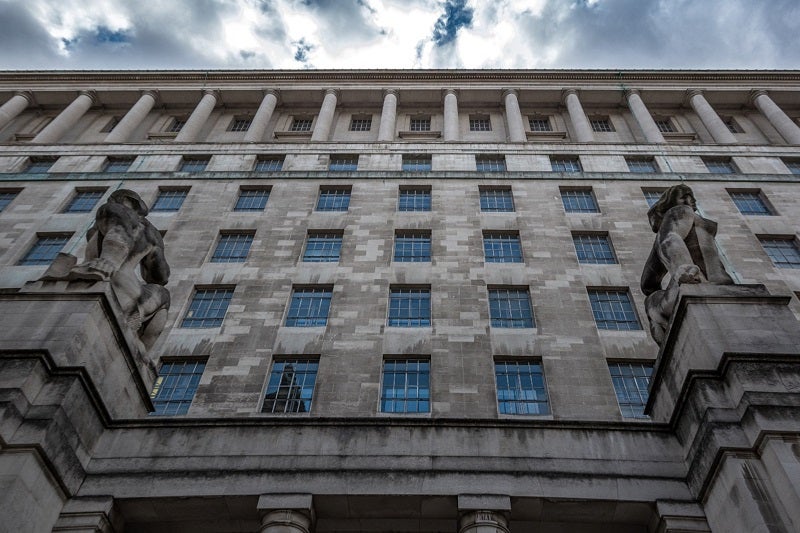“The country has new leadership. This Ministry has new leadership,” declared the newly appointed UK Secretary of State for Defence, John Healey, in his first address to staff at the Ministry of Defence (MoD) when he arrived on 5 July 2024.
An optimism bias has pervaded British public opinion following an historic denouncement of the former Conservative government, which has lost 251 seats in Parliament. However, it is dificult to feel such a sentiment when it comes to defence, a topic brushed aside by concerns over the health service or the climate (albeit meaningful concerns).
With tension fomenting around the world, the hard work has only just begun for the fledgling government. They will need to deliver from the get-go at the Nato summit which begins 9 July in Washington, marked by the 75th anniversary of the military alliance.
So who will be holding the reins in defence? What issues can we expect the MoD to tackle in the near-term?
John Healey, Secretary of State for Defence
Having served as Shadow Defence Minister since 2020, John Healey has dropped the oppositional prefix as he steps up to steer the helm at the MoD.
It is clear that Healey’s parliamentary career path, spanning more than 25 years, has determined his priorities in defence. Serving in positions in housing, health, adult skills and flood recovery among others, during the New Labour administration and the subsequent wilderness years, has cultivated a deep concern for personnel and their families.
While 14 years of Conservative government “hollowed out” the armed forces only to obtain complex weapon systems that pushed programmes into lengthy delays, Healey suggested that due concern for troop living standards became an afterthought, if thought about at all.
As part of what he has called his new “moral contract with the military,” the new Labour Defence Minister has vowed to support them, and to establish a new position entitled Armed Forces Commissioner tasked with improving service life. A policy conceived in June 2023, the role will be set up by a Bill in Labour’s first King’s speech.
Assessing the state of the British Army, GlobalData Defence Analyst Tristan Sauer has suggested that this is a sensible priority. Although “Britain has always been very good at focusing on innovation,” there is also a political argument that this has been “undermined” by the minimal investment in soldiers, leading to inadequate barracks and little medical coverage to name a few problems. Sauer noted that this has negatively impacted retention, which has led to a feeling that “the government has lost sight of them.”
Nato and Ukraine ahead of the summit
Of course, Healey also faces a contested world order and a need to project a credible posture. This side of things will be guided by the new principles of a ‘changed’ Labour Party. Healey listed them in an article in March 2024, for a local newspaper in his Yorkshire constituency:
“I set out our core principles – with unshakable Labour commitments to Nato, our nuclear deterrent, international law, and to building more in Britain.”
Appealing to the country with a more centrist mould has left little difference in policy compared with the previous government. Although, there is space for Healey to put some ‘change’ in motion when they hit the ground running at the Nato summit.
It may be high time that Healey and Starmer lay down a roadmap to fulfil their pledge to spend 2.5% of the UK’s gross domestic product (GDP) on defence, or maybe go a little further.
One research fellow at the Council on Geostrategy, William Freer, suggests the UK should encourage allies to commit to spend not 2% but 2.5% of GDP on defence, and should move its own defence spending to 3% to convey its own commitment. “This would ease tensions between Washington and many of Europe’s free riders,” he stated.
When it comes to Ukraine, Healey has already begun work two days into the job. During a visit to Odesa on 7 July, he declared the Labour government’s first military support package to Ukraine after meeting with President Volodymyr Zelenskyy and his counterpart, Rustem Umerov.

The package comprised ammunition, missiles, artillery guns and boats among other things.
However, this commitment represents a sense of continuity with the previous Conservative government as the aid builds directly off of the Conservative’s largest package of support in April 2024. If Healey and his department are going to make any meaningful change, it will be in evaluating what their support to Ukraine might look like going forward.
Principal and founder of UK-Ukraine Tech Exchange – a non-profit organisation dedicated to supporting startups in the two countries while contributing to Ukraine’s war effort – Andriy Dovbenko offered his thoughts:
“The unspeakable atrocities in Ukraine have demonstrated that more than just increases to public defence budgets will be required to combat any threats. We also need to stay on the cutting edge of defence innovation and invest in emerging technologies that will help to achieve and maintain security,” he asserted.
MoD procurement process
Although the new government has expressed its commitment toward Nato, Ukraine and the defence industry, how they will go about implementing meaningful change remains to be seen, although given the Nato summit this will quickly unravel later this week.
"Are we going to move to something that forces decisions earlier on? Is there a drive to build a coherent force and enablers for it to operate?”
Matthew Savill, RUSI.
Nevertheless, there is a need for some serious soul-searching on the MoD’s part; especially in defence procurement, when it comes to delivering the resources the armed forces need.
“What will change?” asked Matthew Savill, director of military sciences at the Royal United Services Institute (RUSI) in a briefing on 8 July. “Are we going to move to something that forces decisions earlier on? Is there a drive to build a coherent force and enablers for it to operate?”

In May 2024, Defence Equipment & Support – the MoD’s procurement branch – announced that a new Integrated Procurement Model would be in “full flow” by the beginning of 2025. This Model is designed to ensure “a clear focus on pace and consistent, timely delivery” is achieved in programmes from the very start, contended James Cartlidge, the former Defence Procurement Minister.
Savill considered the MoD’s procurement process and found that “the majority of programmes are on time and in cost,” he affirmed. “The problem is that the big [programmes] go off course so much it throws out the whole porgramme. You got to estimate it bang on over the year and for the programme to expect delays.”
He continued: “I expect the new [IPM] to be used, but what they need to think about is what kind of central control and finance discipline do they think is necessary? They’ve got to stop having these spending increases predicated on the idea it’s efficient, in truth they never make these full efficiency savings.”









